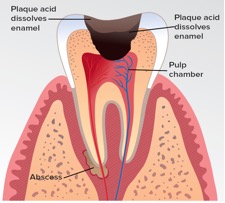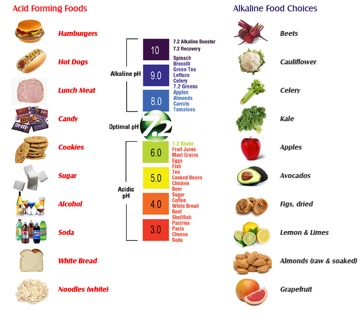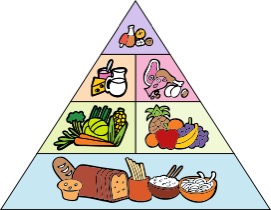 Having healthy teeth doesn’t only start with regular dental check ups, brushing your teeth and flossing. Like the rest of your body, your mouth depends on overall good nutrition to stay healthy. In fact your mouth is highly sensitive to poor nutrition. It can lead to tooth loss, tooth decay, periodontal disease and bad breath.
Having healthy teeth doesn’t only start with regular dental check ups, brushing your teeth and flossing. Like the rest of your body, your mouth depends on overall good nutrition to stay healthy. In fact your mouth is highly sensitive to poor nutrition. It can lead to tooth loss, tooth decay, periodontal disease and bad breath.
How does your diet lead to tooth decay?
The excessive intake of discretionary foods, such as sugar sweetened beverages, processed food and sugary snacks on a daily basis are the number one cause of tooth decay. Each time you eat or drink you are exposing your teeth to an acid attack. This is because bacteria in the dental plaque feed on the sugars and starches in the food we consume and produce acids as a by-product. If these acids are exposed to the teeth on a regular basis it begins demineralising the tooth enamel resulting in tooth decay.
To help decrease the risk of tooth decay we need to avoid regular snacking of sugary foods and drinks. Choosing foods from the five major food group’s such as fruit, vegetables, bread and cereals, dairy products, meats, chicken, fish and beans will also decrease the risk of tooth decay.
 How your diet affects your saliva which can lead to tooth decay?
How your diet affects your saliva which can lead to tooth decay?
Saliva is the body’s natural defence against tooth decay. It helps dilute and wash acids and sugars from the mouth. It reduces the effects of the acids which are produced by plaque bacteria. When acid attacks occur too often your saliva doesn’t have enough time to repair the damage and this is when tooth decay will develop.
How your diet effects tooth erosion?
Tooth Enamel is the hardest material in the body; it covers the outside of the teeth. This is what helps protect the inner layers of the teeth. Tooth erosion occurs when you consume too many acidic carbonated drinks (with a pH under 5.5). They dissolve away the tooth enamel. This can eventually lead to the loss of tooth structure leading to sensitivity and the need for dental treatment.
Which Drinks Can Be Erosive?
| Drink | pH |
| Saliva | 7 |
| Milk | 6.9 |
| Water | 6.0-7.0 |
| pH 5.5 |
|
| Beer | 4.0-5.0 |
| Herbal teas | 3.1-3.8 |
| Sport Drinks | 3.0 |
| Orange Juice | 2.8-4.0 |
| Soft/ Diet Drinks | 2.7 |
| Alco pops | 2.5-2.8 |
| Wine | 2.3-3.8 |
Non Erosive
Potentially Erosive

Having a balanced diet combined with good oral hygiene and regular dental check ups can help keep the teeth stay healthy. Here are some helpful tips:
- Drink Tap water not bottled water as tap water contains Fluoride
- Limit your intake of sugary drinks and food to less than 5 times a day
- Make sure you are brushing and flossing your teeth twice a day
- Avoid Sucking on hard candies or mints because the sugar greatly increases the risk of decay. So if you are feeling like a mint have a sugarless mints.
 Limit meal snacking- fewer snacks mean less acid exposure for your teeth. However if you choose to snack try to choose foods that are not fermentable carbohydrates. The best choices being Cheese, chicken, meats or nuts. As these foods help neutralize acids and provide the calcium and phosphorus needed to put minerals back into the teeth, helping to protect the tooth enamel
Limit meal snacking- fewer snacks mean less acid exposure for your teeth. However if you choose to snack try to choose foods that are not fermentable carbohydrates. The best choices being Cheese, chicken, meats or nuts. As these foods help neutralize acids and provide the calcium and phosphorus needed to put minerals back into the teeth, helping to protect the tooth enamel- Limit the amount of soft drinks or any other drinks that contain sugar. These include coffee or tea with added sugar, fruit juices that contain natural sugars as these can all cause decay. Avoid sipping them throughout the day. A can of soft drink that you finish with a meal exposes your teeth to acids for a shorter time then a can of drink that takes you two hours or more to drink.
- Limit very acidic foods (such as citrus fruits) because they can make the mouth more acidic. They contribute to the loss of minerals in the teeth.
- After snacking chew on sugarless gum for 20 minutes. This stimulates saliva production and pumps it around the mouth neutralising any harmful acids in the mouth.
- See your dentist for regular check ups at least once a year. A Preventative Care appointment is normally recommended every six months. At this appointment your gums are professionally cleaned keeping them healthy and preventing gingivitis (gum disease) and other serious problems. Your dentist will also check for advancing tooth decay, fractures (which if left untreated can cause serious problems even the loss of a tooth), bite issues and oral cancer. These are just some examples of the importance of having your regular Preventative Care Appointment (it’s not “Just a clean”) it enables problems to be picked up and treated before they become serious.
If you would like to make an appointment, please call Vision Dental on (02) 9543 4222.
